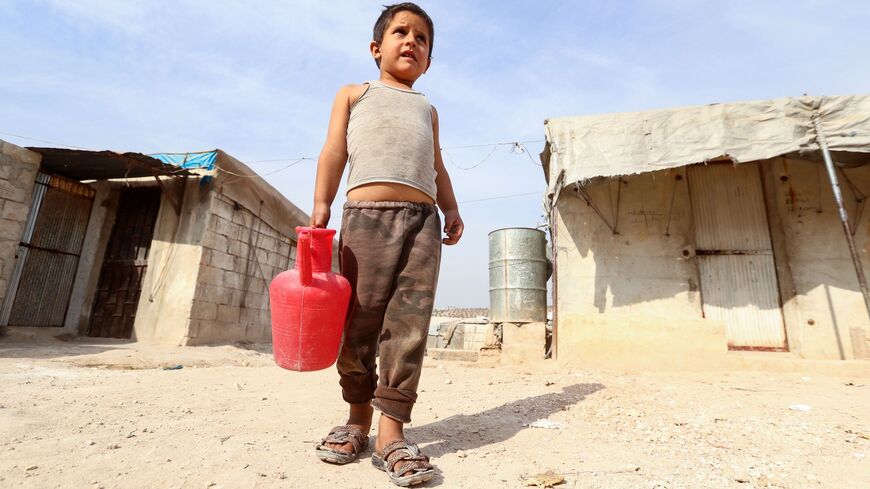ARMANAZ, Syria — Years of war in Syria have greatly impeded access to basic services, including access to potable water, with only 50% of the water and sanitation systems functioning properly across Syria, leading to damaged crops, economic instability and a deadly cholera outbreak. While the country launched a cholera inoculation campaign Dec. 4, the end of a water supply program in late October threatens further devastation.
The organization GOAL, dedicated to respond to the needs of the affected communities in northwest Syria by providing food and non-food assistance to the population including water and sanitation, said in a statement that its water program ended its operations on Oct. 31. That cuts support for stations in 42 towns and villages has stopped, including Armanaz, Qorqania, Abu Talha and others. The statement did not address the reasons why support has stopped.
The organization GOAL, dedicated to respond to the needs of the affected communities in northwest Syria by providing food and non-food assistance to the population including water and sanitation, said in a statement that its water program ended its operations on Oct. 31. That cuts support for stations in 42 towns and villages has stopped, including Armanaz, Qorqania, Abu Talha and others. The statement did not address the reasons why support has stopped.
The director of the local council of the city of Armanaz, Firas Dannoun, told Al-Monitor that GOAL informed them five months ago that support for water stations would stop by end of October.
"The cessation of water subsidies to these towns and camps will lead to a state of neglect of public and personal hygiene and thus an increase in the spread of diseases and epidemics, especially after the spread of cholera in northwestern Syria due to the poor living conditions of the population and the displaced," he said.
"We, as the local council of the city of Armanaz, cannot secure water without the support of organizations."
In the absence of new financial support for the project, water stations in 42 towns and villages west of Idlib ceased operations. The camps surrounding these villages have been affected because they are beneficiaries of the water subsidy project, and there are about 12 camps around the city of Armanaz that have been affected as well.
Dannoun explained that people will now buy a 5,000-liter water tank to fill the earthen well for $8 (150 Turkish liras) while filling a tank of 2,000 liters for $2.6 (50 Turkish liras). These amounts affect families who do not have a source of income or have one that is very low.
The Syria Response Coordinators team, which is active in northwestern Syria, issued a statement on social media outlining the absence of clean and potable water in 47% of the camps for the displaced, as the number of camps not served with water reached more than 658. Their numbers are expected to increase as a result of the cessation of their projects.
Faisal Ahmed Hassan, a resident of al-Kaziyeh camp near the town of Armanaz, who was displaced from the Al-Ghab Plain, told Al-Monitor, that the amount of purchased water is still not enough.
“After the water subsidy was cut off from the camp, my neighbors and I started buying water tanks in order to share it and fill our need for water for a week. Of course, this amount is not enough for us … we use the water very carefully in order to [make it last]," he said.
"The number of families in the camp is 70, and each person needs about 35 liters of water daily. For example, my family and I are six people, and we need about 300 liters of water daily."
Deputy Director of the Idlib Health Directorate Hossam Qara Muhammad told Al-Monitor that not providing the camps with water will have disastrous results. Those affected by the lack of water will neglect their personal hygiene, risking an increase in skin problems such as scabies and lice, as well as COVID-19 spread.
Residents will also be forced to search for alternative sources of water that may be unhealthy. This will cause an increase in the spread of water infections — the first of which is the infectious disease cholera, which is currently spreading in the region.
Stopping the supply of water to camps may also cause new waves of displacement and migration of the people residing in them.
The number of internally displaced people in the region is approximately 2.8 million. Of those, 1.7 million live in camps, according to a report by the United Nations Office for the Coordination of Humanitarian Affairs (OCHA).








